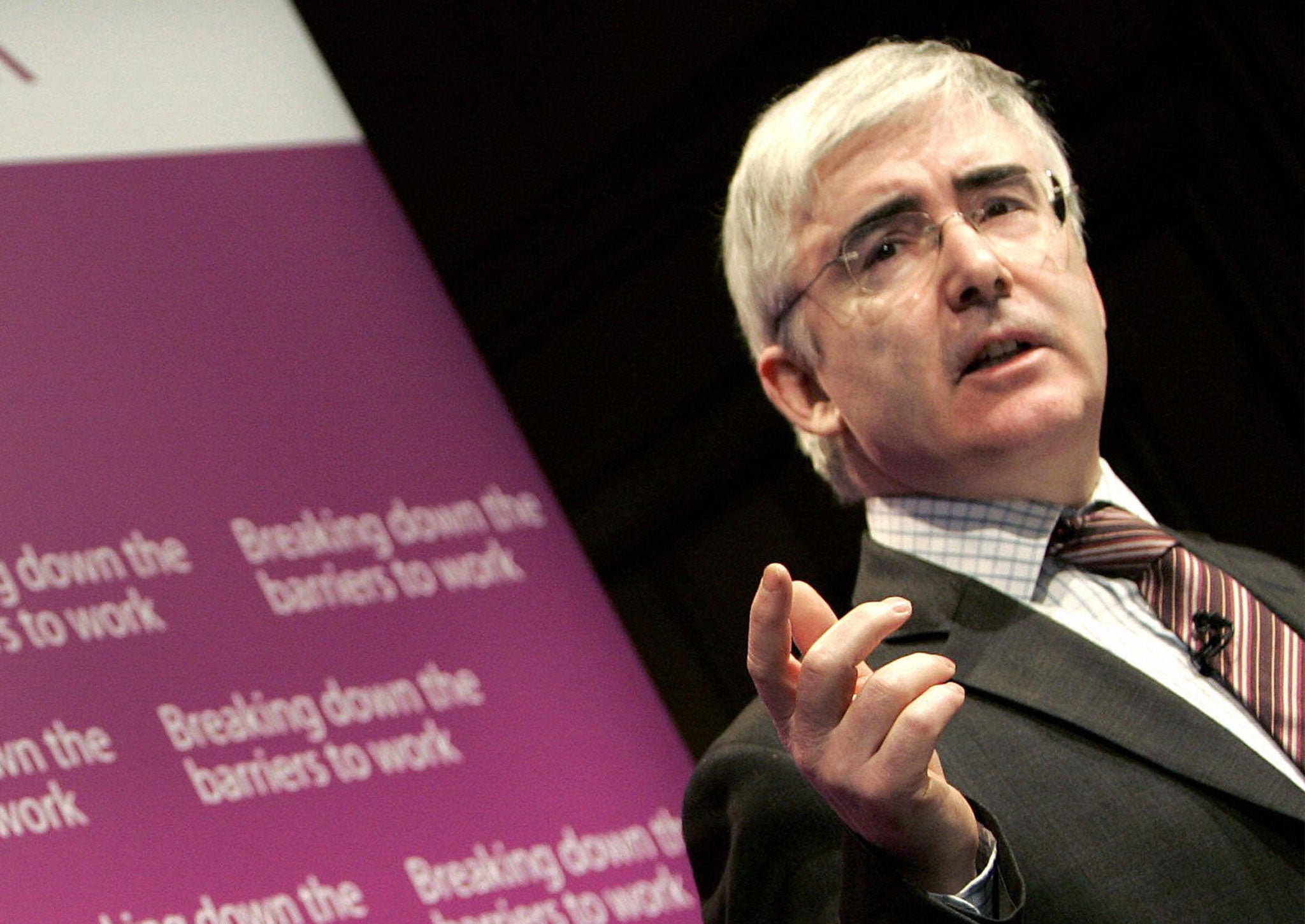Lord Freud was a Tory time-bomb just waiting to explode
If you read about Freud's time spent working in the City, then his latest comments come as little surprise


In his book, Freud in the City, David Freud was coming towards the end of his City career. He was 53, had made a ton of money, worked on numerous deals, and there was nothing left. “I had simply lost interest. I was no longer challenged,” he wrote.
He was in reflective mood, looking back over his achievements. He’d brought Eurotunnel to the stock market. “As the marketer of the issue, I had successfully sold the market a pup.” On EuroDisney he did something similar. “I had engineered an extremely hot issue which was consequently overpriced and encouraged a level of overspend by the Disney organisation that led to the subsidiary’s collapse and rescue.”
He recalled how Miko Giedroyc, a flamboyant, witty City analyst would greet him with the words, “Ah, the Fraud Squad.” Wrote Freud: “It was not just a play on my surname. It reflected the concern of the equity sales team that I would create a marketing bandwagon for my issues that led to a distortion in the level of demand and the price obtained.” Or, to put it another way, he promoted the hell out of the shares which subsequently bombed.
Reading it, it’s impossible to imagine that one day Freud would be the government minister responsible for welfare reform. It is possible, though, that if you know that to be the case, to picture him being caught out at the Tory conference suggesting some disabled workers are “not worth” the national minimum wage and should be paid just £2 an hour.
For the book is an account of someone engaging in behaviour that those outside the City might find repugnant – “morally ambiguous” was the playwright David Hare’s description of Freud’s memoir – and holding values that would not square with those attached to a government minister.
Freud comes across as an outspoken, error-prone character, who treats his journey through investment banking as a romp. He had a habit of speaking his mind, of thinking aloud. It was only a matter of time before a surreptitious tape recorder snared him. It’s no surprise either that he was trapped saying exactly what he did. Freud spent most of his career valuing output. That’s how the City pays – not according to what people put in. You can work all hours – they frequently do – and nobody cares. It’s what you produce that matters.
That’s the likely reason for why he slipped into saying, “There is a small… there is a group, and I know exactly who you mean, where actually as you say, they’re not worth the full wage…” He would, he said, go away and think about whether there was a way of paying such a person £2 an hour.
In the market-led City the notion of a flat, hourly rate of £6.50 is anathema. It’s anti-market, an imposition that does not reflect the true value of someone’s work.
All of which points to the fact that as welfare reform minister, Freud was an accident waiting to happen. He’d already had three run-ins – one when he declared the benefits system let people “have a lifestyle” on the state. Asked whether his wealth meant that he could not understand life on benefits, he replied: “You don’t have to be the corpse to be at the funeral.”
Another was when he suggested more people were using food banks because there were more food banks. The other was his suggestion that the children of families affected by the “bedroom tax” could use a sofa bed when visiting a separated parent.
None of which would raise a single eyebrow in the City. Most City folk would regard what he said as eminently sensible – except they would choose to end benefits, scrap food banks and would struggle to get their heads round anyone not having a spare room.
What his latest gaffe highlights is that City veterans do not make ideal ministers, not even Conservative ones. There are plenty of examples of those who have moved across, only to complain about the difficulty in getting things done. Usually that is taken to be a reference to the sheer slowness of progress in Whitehall.
But what it is as well is a pointer as to why achieving anything takes so long. Everybody has to be included; all views must be considered. It’s easy, being a back-seat driver in the City, looking at governmental policies and poking holes in them.
It’s when they become ministers that they discover that most of those supposedly, wishy-washy daft clauses are there for a reason. And that purpose may not be reliant upon common sense – it could be down to wanting to limit a public outcry and retain reputation. You can almost hear Sir Humphrey Appleby from Yes Minister, asking a hapless Freud as to what he’d rather do: “Have a minimum wage, minister, that reflects economic efficiency or one that will alienate disabled campaigners and provoke a storm?”
Governments, including Tory ones, are built, by and large, on inclusivity. Their measures start out tough and are then watered down.
Most politicians also have a sixth sense for elephant traps. Occasionally they get caught out, but in a semi-public forum, at a party conference, on an issue as sensitive as the disabled their antennae would be on full alert. Freud has learned a brutal lesson. “I could not have had greater challenges, more drama or more sheer fun over those 20 year doing anything else,” was his parting shot to the City. Life as a minister has challenges and drama aplenty, but fun it is not.

Join our commenting forum
Join thought-provoking conversations, follow other Independent readers and see their replies